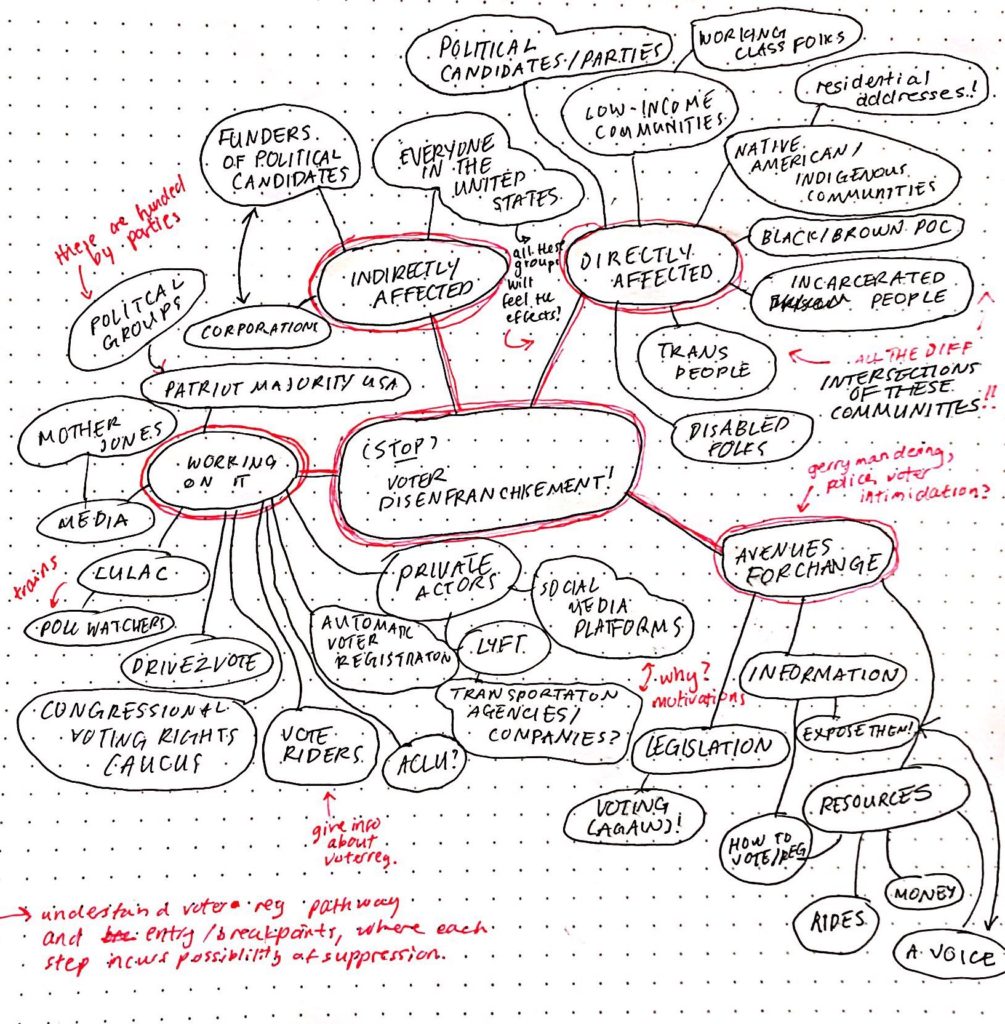The topic I want to work on for the rest of the semester is voter disenfranchisement / voter suppression in the United States. While voting often seems like an ineffectual way of making change, I think it’s important to explore who is actively being blocked from voting. This is a topic that affects a lot of marginalized, underserved, and oppressed communities whose livelihoods can often be directly and negatively impacted by legislations or policies passed without them being able to exercise their voting rights on them. For example, disenfranchisement of incarcerated people in most states in the U.S. (all excluding Maine and Vermont) means that they would not be able to vote for candidates that are pushing justice system policies that directly impact their livelihood and well-being in positive or negative ways. In 35 states, people on parole are also excluded from voting, and in 31 of these states people on probation are excluded from voting as well (https://www.sentencingproject.org/publications/felony-disenfranchisement-laws-in-the-united-states/). Combined with the fact that mass incarceration overwhelmingly affects Black, Hispanic/Latinx, and Indigenous communities, we see a significant population in the U.S. being systematically deprived of their ability to exercise democratic rights. Some other communities that are affected by voter suppression include low-income communities who are not able to afford transportation to voting booths, indigenous communities (for example in North Dakota with the recent Supreme Court decision to only allow people with residential addresses register to vote: https://rewire.news/ablc/2018/10/11/supreme-court-native-americans-november/), and numerous other people and communities who identities often overlap and intersect with each other to become targets of voter suppression.
There are a number of things that have been done in this area already by groups like the League of United Latin American Citizens, who worked on training poll watchers to not partake in voter intimidation, or Patriot Majority USA who ran voter registration drives in 2016 (“In 2016, Patriot Majority USA funded a successful voter registration drive in Indiana, empowering tens-of-thousands of African-American voters despite state-sanctioned harassment by officials appointed or closely aligned with then-Governor Mike Pence”). Heading into this midterm election, I’ve seen a lot of social media entities like Instagram and Facebook putting in notifications to users to remind them to vote. And a lot of community organizations, from non-profits to student orgs, are canvassing and asking people to register to vote ahead of the election. For this project I would like to investigate further the means through which voter suppression and disenfranchisement happens in the U.S. and design a convening to think about ways to combat it, especially when disenfranchisement strategies are implemented in systematic and seemingly unbeatable ways (e.g. restrictions on voter ID qualifications).
